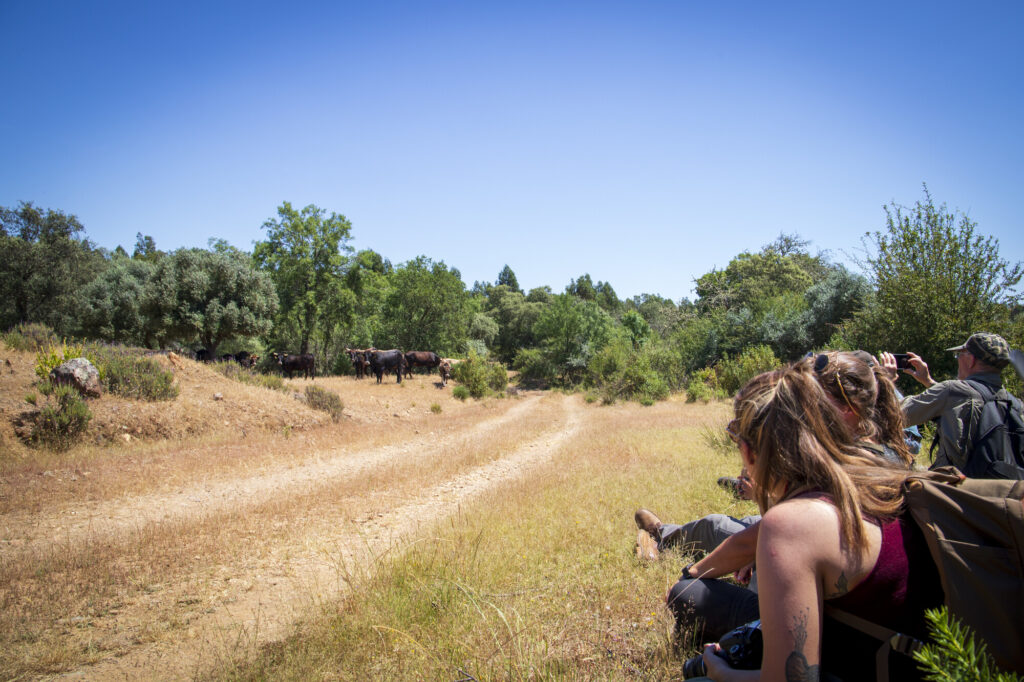Natural grazing can deliver multiple benefits for nature, climate and people. An event in the Greater Côa Valley rewilding landscape in Portugal at the end of May, which brought together a wide range of experts and young rewilders, helped participants to share knowledge and expertise, with the aim of scaling up this essential natural process in Europe.
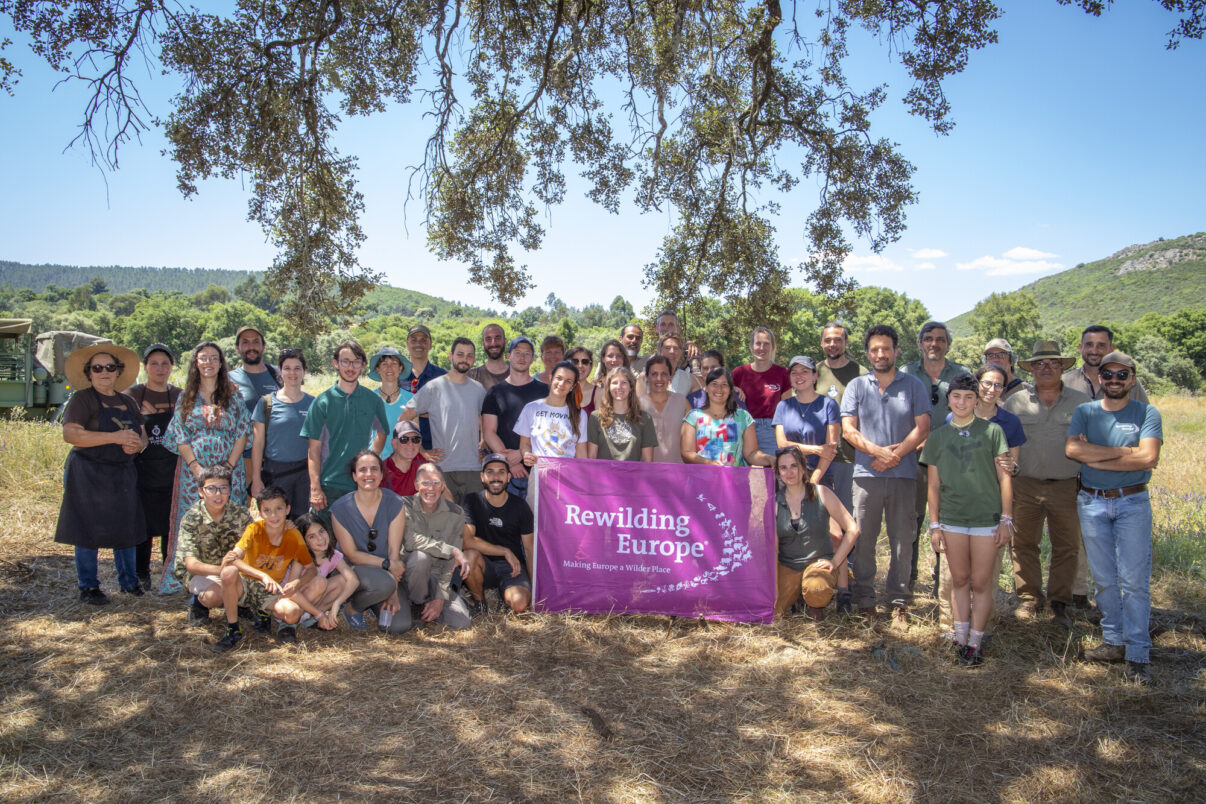
The importance of natural grazing
Natural grazing by large, free-roaming wild and semi-wild herbivores such as deer, European bison, and horses is critical to the health and functionality of many European landscapes. It can boost biodiversity by opening up landscapes and preventing encroachment by shrubs, reduce the risk of catastrophic fire, and enhance carbon storage and climate change resilience. Returning iconic grazers such as European bison to landscapes can also support the growth of nature-based economies, generating jobs and a new pride in local nature.
In late 2023, Rewilding Europe launched its Natural Grazing Facility, a tool for scaling up the adoption of natural grazing across Europe. The facility works by connecting demand and supply of herbivores among organisations dedicated to Rewilding Europe’s rewilding principles.
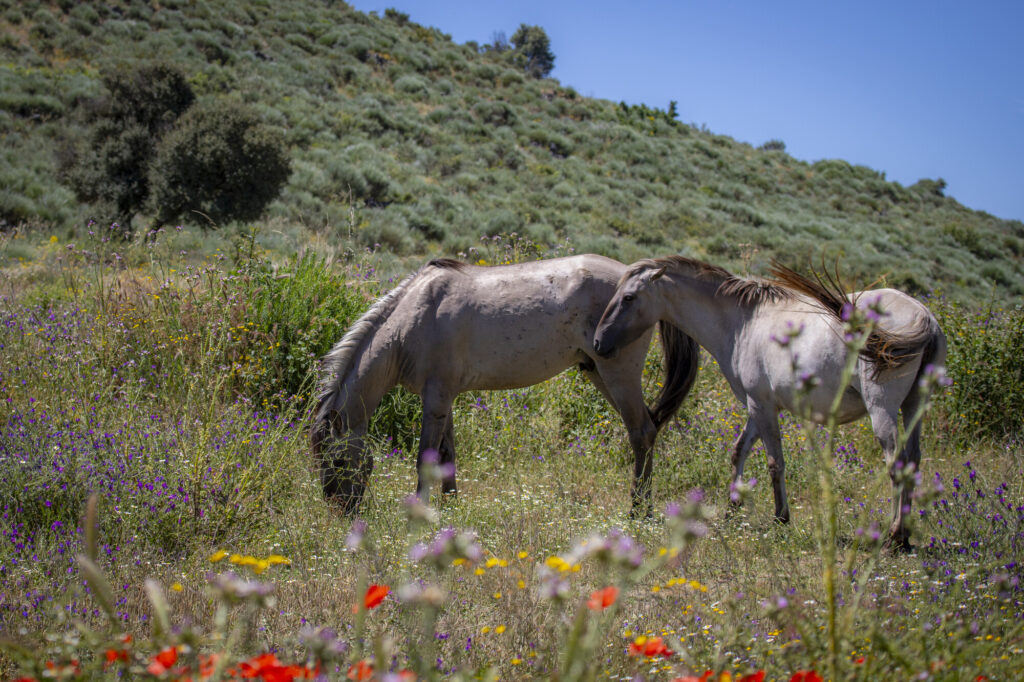
Promoting collaboration and scaling up
To foster collaboration, share best practice, and promote the wider adoption of natural grazing in European landscapes, a five-day event took place in the Greater Côa Valley rewilding landscape in Portugal at the end of May. In addition to members of the Rewilding Europe central team, it was attended by representatives of various rewilding landscapes, members of the European Rewilding Network involved in natural grazing and other natural grazing experts, and five members of the European Young Rewilders network.
“This event was really productive, allowing participants to share their ideas about the principles behind natural grazing, and to discuss how they can be applied in many different contexts across Europe,” says Rewilding Europe’s rewilding manager, Sophie Monsarrat, who gave a presentation on the Natural Grazing Facility, and also explained the principles of natural grazing.
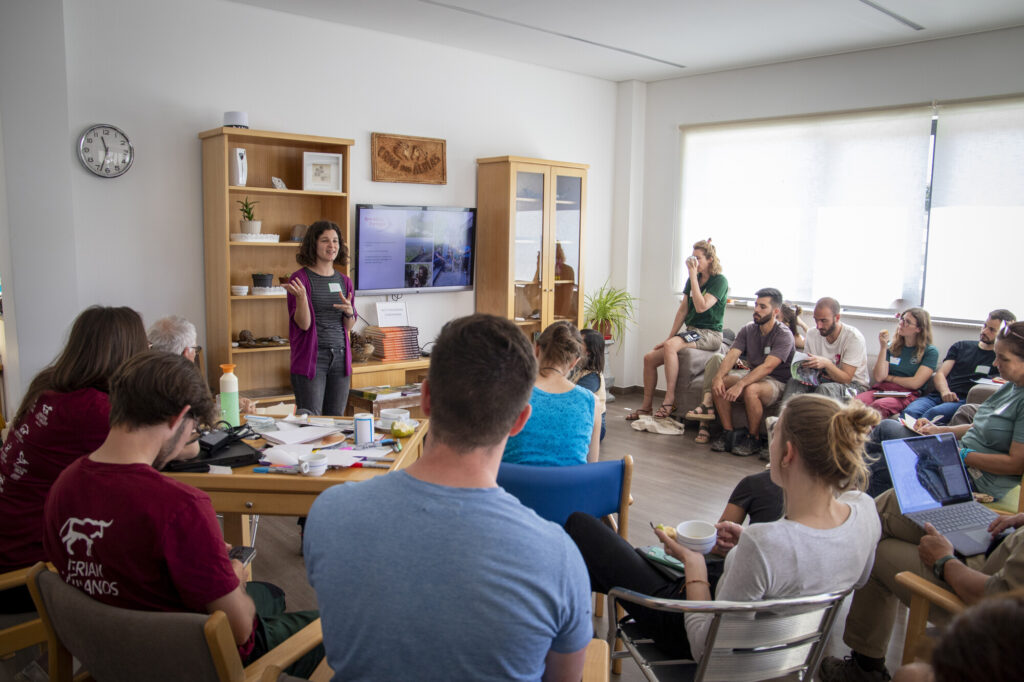
A diverse agenda
The wide-ranging agenda of the event was designed to facilitate peer-to-peer exchange, with European Rewilding Network members sharing experience and best practices related to their own natural grazing initiatives. It included workshops, presentations, networking, and interactive discussions, as well as field visits to several of Rewilding Portugal’s natural grazing sites involving Sorraia horses and Tauros.
“Gathering together experts from different countries gave us a great opportunity to exchange thoughts and ideas about different grazing-related topics,” says Esther Rodriguez, a grazing advisor at PWN, which is part of a collective managing the European Rewilding Network’s Kraansvlak Bison initiative. “It was inspiring to see and hear how natural grazing is being enhanced at different rewilding sites in different contexts, and the benefits this is delivering.
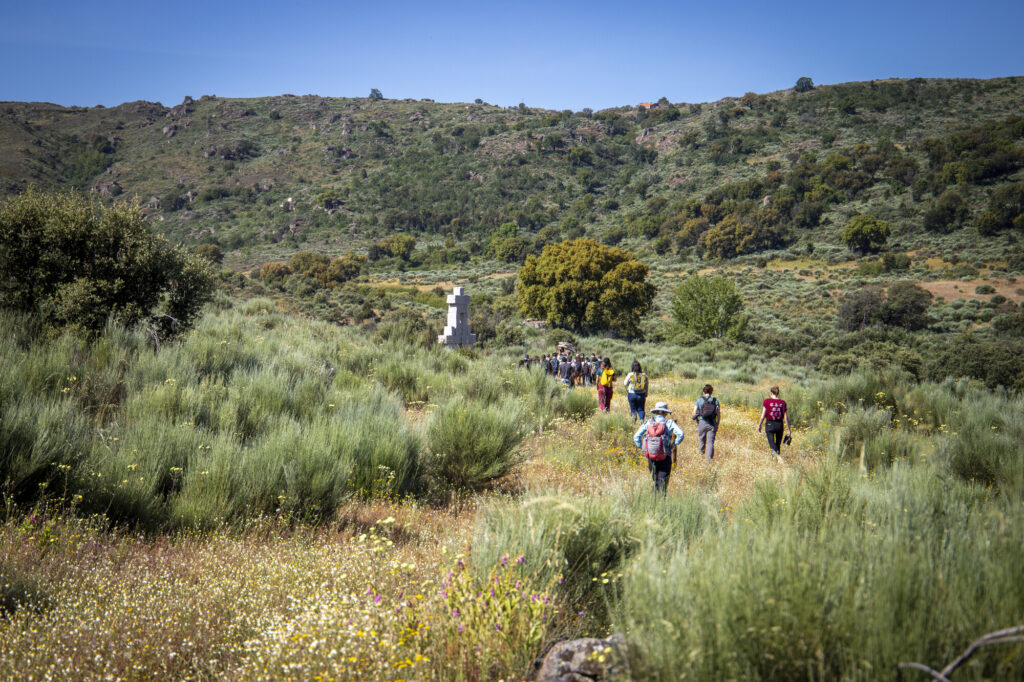
“Once the Natural Grazing Facility database has grown, I think it will be very useful in terms of enabling the relocation of wild herbivores. I’m looking forward to seeing how it develops in the year ahead.”
“I found it both useful and motivating to see the range of ways in which natural grazing is being scaled up across European rewilding sites, some of which are relatively small in terms of area,” adds Viola Kerekes, a project coordinator at Hortobágy National Park Directorate in Hungary, who is involved in the European Rewilding Network’s Pentezug initiative, which is working to rewild open grasslands using large herbivores such as Przewalski’s horses. “The event was well organised, with lots of opportunity for communication. By joining forces, I think the network has great potential to come with joint solutions to the diverse challenges that European natural grazing initiatives face.”
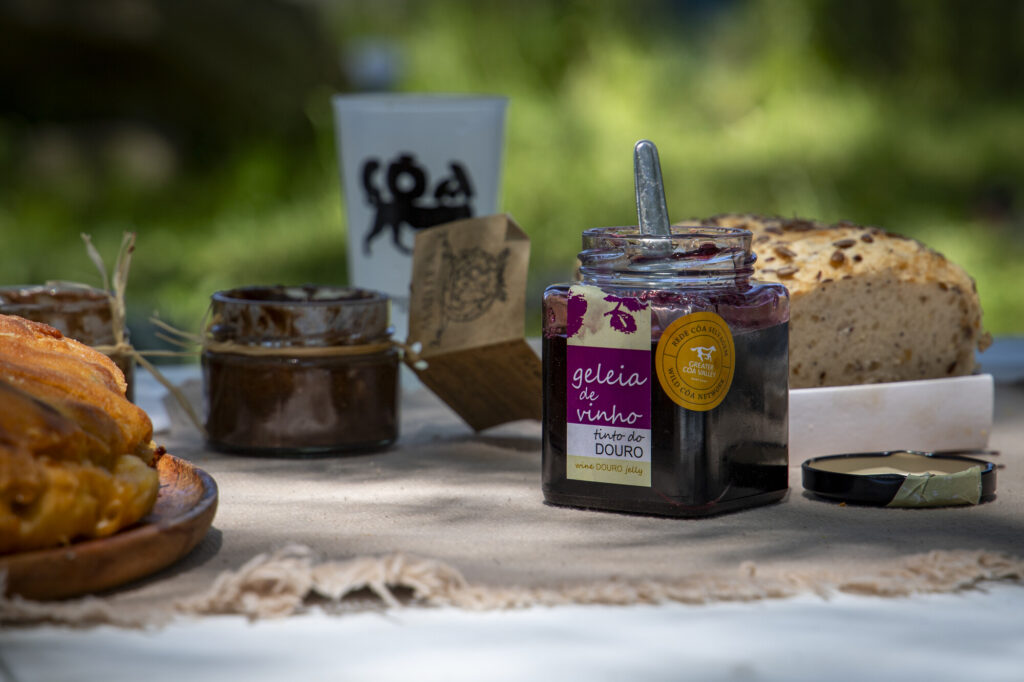
Advancing the European Young Rewilders
Young people are the future of rewilding. By inspiring and enabling them, Rewilding Europe’s European Young Rewilders (EYR) initiative – which began life in 2022 – is working to accelerate nature recovery and support the burgeoning growth of the rewilding movement. More than 450 young people joined the network in 2023, with total membership now over 700. The Greater Côa Valley event was attended by members of the network from across Europe, who are all volunteers that help with organisation and promotion. In addition to participating in most of the agenda, they also took part in three parallel sessions focused on team-building and leadership.
“This was an opportunity to think about the future of the network – to map out what are we doing and why, and what we need to do to achieve our objectives,” says Giulia Testa, the European Young Rewilders coordinator. “Some network members have experience and knowledge of natural grazing, so it was great for them to see Rewilding Portugal’s work in the local landscape, and to hear from the representatives of the European Rewilding Network. The event was also an important inter-generational moment that allowed young rewilders to network, be part of the conversation, and provide input.”
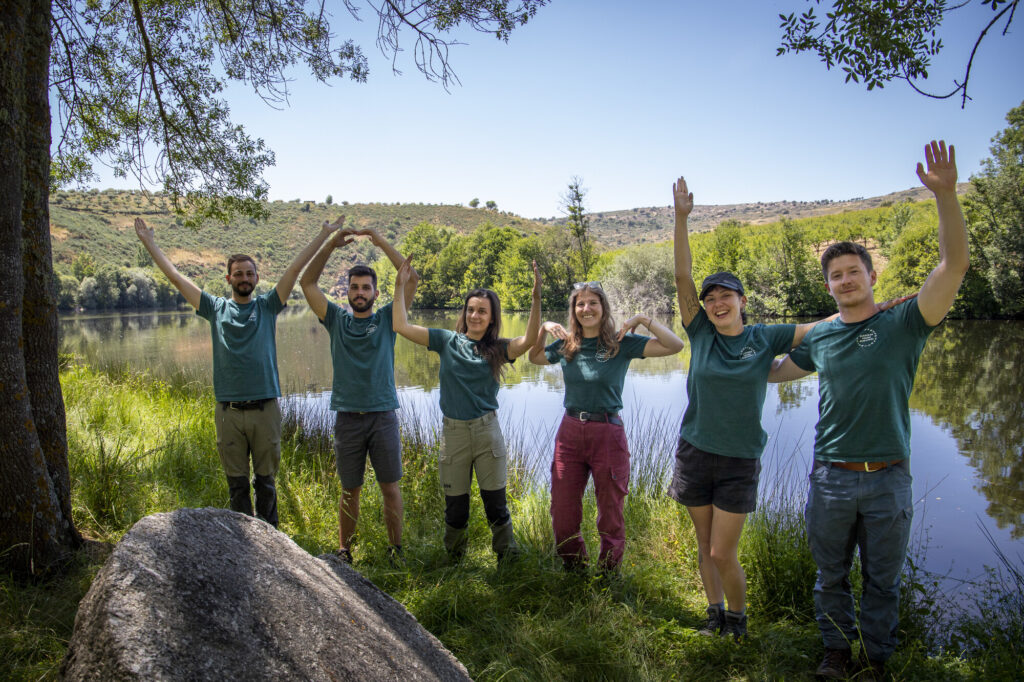
A young rewilder’s perspective

One European Young Rewilder attending the event was Denmark-based, 26-year-old Søren Thomsen, who is the Danish national contact for the network. He works as a consultant for a company specialising in nature recovery, including initiatives around natural grazing. He also helps to run a 26-hectare family-led rewilding initiative involving ponies and cattle, and is the founder of The Extinctions – a scientific blog on large animal extinctions throughout history. Through the European Young Rewilders network he has formed a wide range of connections with peers in the rewilding sphere, and was referred to his current employer by another network member.
“I found the event incredibly helpful,” says Søren. “It helped me to gain knowledge about natural grazing, both from a theoretical viewpoint, and also through the practical experience and expertise of the various rewilding initiatives represented. It was also an amazing opportunity to discuss the development of the European Young Rewilders. I really feel that the network volunteers who participated had their voice heard in the decision-making process.”
Facilitating natural grazing
Anyone involved in practical rewilding that employs natural grazing can connect with the Natural Grazing Facility – either as a potential supplier or a potential recipient of herbivores. All organisations will be carefully vetted to ensure their efforts align with rewilding principles. Please contact Sophie Monsarrat for more details.
